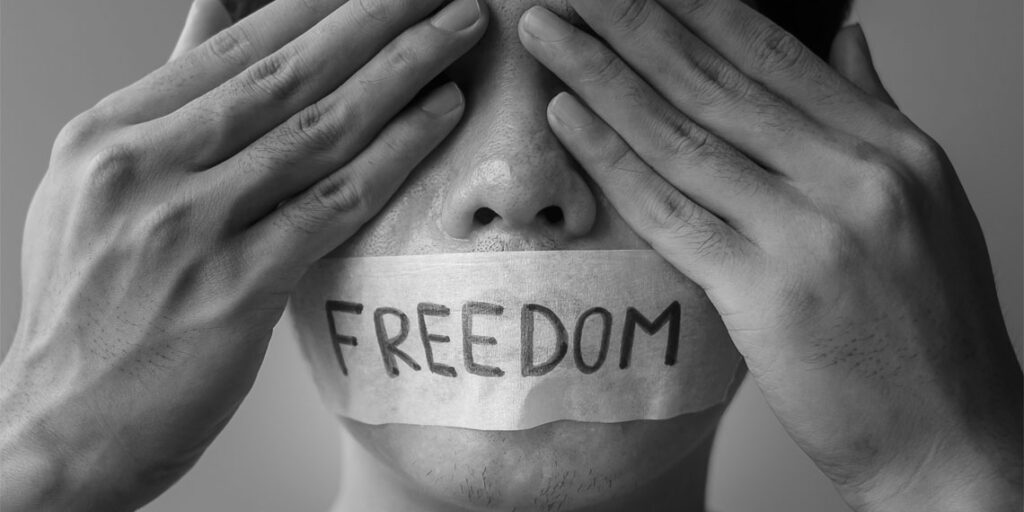
Source: PsyPost
This new column, by Ambassador Ebrahim Rasool, will focus on his experiences of engaging the Muslim world; in the majority heartlands, and where Muslims are the minority.
Over the last two decades I have been engaging the Muslim world regarding strategy in the face of authoritarianism in the majority heartlands, and islamophobia and exclusion in minority communities. The main questions involve how Muslims won credibility through participation in the anti-apartheid struggle; how Muslims have been mainstreamed in the political, social, and economic life of post-apartheid South Africa; and how we’ve thrived under conditions (democracy, unconditional inclusion of all who are different, and a regime of human rights and freedom) often viewed with suspicion by Muslims. I am explicitly asked as a Muslim leader who has experienced the vicissitudes of democratic political life.
This search for alternative statecraft emerges from the preponderance of authoritarianism with its discontents, as well as the limitations of the alternatives posited (mostly variations on the theme of Islamism and the Islamic State). Statecraft is about the management of state affairs and the actions that constitute the governing of a nation. The choice of tools involved in statecraft is commensurate with the chosen values of the architects of that statecraft (Rights-based vs Coercive States / Open vs Closed Societies / Market vs Planned Economies) which then translate into a model of state chosen for a particular society.
After the Arab Spring erupted to public attention in 2011, I found myself in Khartoum, Sudan; in Cairo as guest of the Muslim Brotherhood; in the company of Tunisia’s Sheikh Rashid Ghannoushi; hosting the Syrian exiles in Washington; in a conference of Muslim constitution writers in Doha, and convening the Muslim Minority Leaders Colloquium in Paris, in pursuit of sustainable Muslim statecraft transcending fault lines that have created a crisis for the Muslim Ummah. In the last year these challenges resurfaced when we needed to engage the parties in Sudan, but also Afghanistan, including the Taliban, after 20 years of USA occupation. However, the urgency for such sustainable statecraft was felt in 2011 as the Arab Spring grabbed our attention.
The surprising emergence, climax, and then dissipation of the Arab Spring between 2011 and 2013, raise a few questions about the Muslim world. Most piercingly it confirms the idea of a Missing Middle – an absence of strategy, especially for Muslim statecraft, and for the Ummah. The Arab Spring showed that large sections of the Ummah struggle for justice, but when it is in their grasp, it dissipates: the Arab spring was a deep and passionate yearning for a new, better, fairer, and more just dispensation to overcome authoritarianism, to escape the repressive surveillance state, to create an inclusive and consultative society, and to reverse poverty and inequality. Yet, when the authoritarians like Ben Ali and Mubarak fell, the missing middle was severely felt.
What is this missing middle? Between the innately righteous and justified principle, and the tactics of struggle – the mobilisation and rhetoric – lies the connective tissue of strategy: How you connect ultimate goals and objectives to the needs of the immediate moment of struggle with the proposition of a minimum vision, inclusive coalitions and understanding your own strengths in relation to the stubborn strengths of the authoritarians? The missing middle is also that which exists between the reality of a stubborn authoritarian and repressive state, and the eventual ideal state you desire. It is the transitional state that may be an improvement on the authoritarian reality and a severe compromise on your ideal. This is the missing middle of statecraft. Finally, the missing middle is the enduring principle in Islam when the Ummah, a global community of Muslims, is described as Ummatan Wasatan – the community that is ‘most middlemost’, ‘justly balanced’ or ‘in the middle’. The extremism of your opponent cannot tempt you to the extremes, but neither should your alternative vision appear extreme to those whose whole existence has been based on an authoritarian extreme.
The absences of these middles (strategy, statecraft and wasatiyyah) create a fertile ground for counter-revolution by the authoritarians and their global allies and distract the forces for change – the Arab Spring revolutionaries – from their primary task of preventing counter-revolution. Ignoring these ‘missing middles’ allows the “winners” of the revolution to be seduced into thinking that their ideal vision has been accepted and they simply need to implement it. The “winners” may shun the need to build inclusive governing coalitions with a ‘winner takes all’ strategy and forget to build governments that could include those who may have an interest in, or be available for, fomenting counter-revolution. Making the middle present roots the idea that the first phase of a post-authoritarian regime is a transitional state, and its first tasks include primarily to prevent counter-revolution; secondarily to bring relief to the most vulnerable in society; and progressively to loosen the grip of the authoritarian institutions over society.
The fact that only ten years ago we dared to imagine that we could soon experience an alternative to the authoritarian, surveillance state in the Muslim world, can only fill us with the hope that the quest for justice and inclusivity beats strongly in the Muslim heart. The fact that ten years later the Muslim world has seen the more assertive return of the authoritarians, that they even flaunt their allegiance to Israel as regional hegemon, and that the Arab Spring is reduced to a momentary lapse in Muslim history, speaks to the severe impact of the Missing Middle, the focus on the art of statecraft in the Muslim World – both as alternative to the hegemonic authoritarianism where we are in majority, as well as the minority statecraft for political participation and social activism as pillars in the fight against Islamophobia.
Ambassador Ebrahim Rasool is the Founder of the World for All Foundation.


